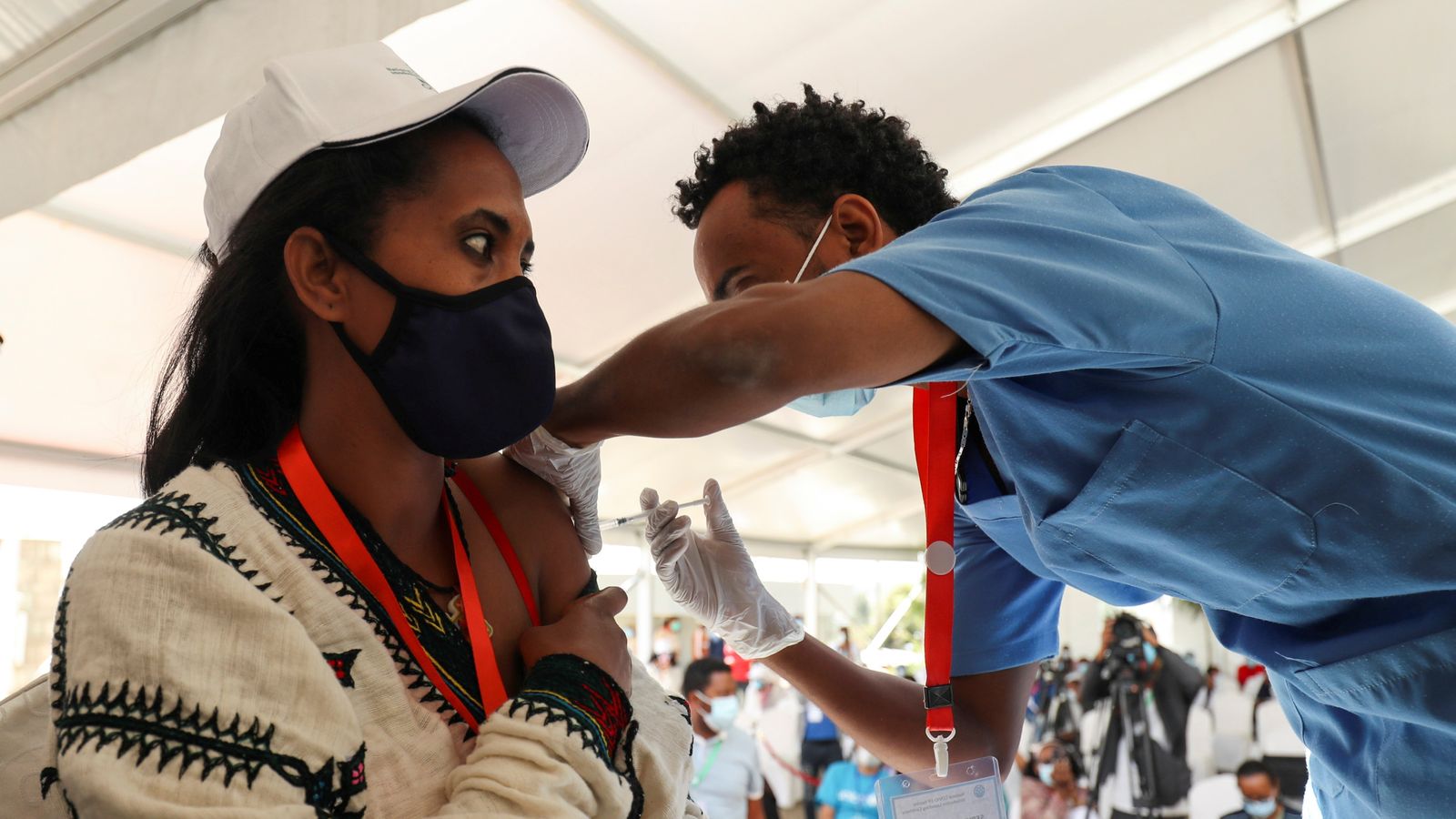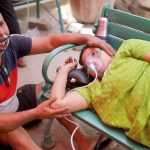G7 countries should donate excess supplies to the global vaccine-sharing scheme as “a minimum, essential” measure, UNICEF has said, to plug an “emergency” gap triggered by a drop-off in Indian exports.
The COVAX scheme relies heavily on doses of the AstraZeneca COVID-19 vaccine manufactured by the Serum Institute of India (SII), which are produced for dozens of low and middle income countries. But India curbed exports of the jab so it could be used domestically to tackle a second wave ripping through the country.
“Sharing immediately available excess doses is a minimum, essential and emergency stop-gap measure, and it is needed right now,” said UNICEF executive director Henrietta Fore.
She added that doing so could help to prevent vulnerable countries from becoming the next global hotspot.
India is grappling with a lethal second wave of coronavirus infections, with 281,386 new daily cases and deaths hovering at about 4,000 a day.
More than 270,000 people in India have died after contracting coronavirus.
UN agency UNICEF, which oversees the supply of coronavirus vaccines through COVAX, estimates the shortfall at 140 million doses by the end of May and about 190 million by the end of June.
Ms Fore said G7 countries could donate about 153 million doses if they shared just 20% of their available supply over June, July and August, citing new research from scientific information and analytics company Airfinity.
She said countries could achieve this while still meeting commitments to vaccinate their own populations, though did not provide further detail.
Other manufacturing limitations outside India have also slowed supply of COVAX, UNICEF said.
But it expects those those delays to be resolved by the end of June.






















